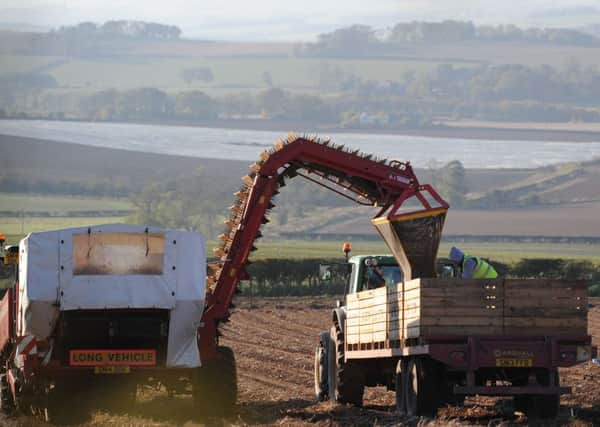Scotland's potato industry '˜must not expand acreage'
This article contains affiliate links. We may earn a small commission on items purchased through this article, but that does not affect our editorial judgement.


His advice was not based on market supply or demand but on the agronomy problems that would increase when potatoes were grown more often on the same land.
“If we are talking about long-term sustainable production – which is what I would like to see – we cannot afford to shorten the rotation,” he said.
Advertisement
Hide AdAdvertisement
Hide AdWale added that, throughout the world, the reduction in time between crops being grown on the same land consistently increased the number of problems with pests.
“It is a simple story,” he continued. “We in Scotland do not have a large acreage of top-quality land for growing potatoes. Reducing the time between crops will only increase problems such as infestations from potato cyst nematodes. These problems will reduce yield and yield reduction will affect income.”
His concern was based on the fact that Scottish producers had been fortunate in recent times – with fewer problems with the weather – and he said merchants south of the Border might be tempted to move production into Scotland.
According to Wale, the 2016 growing season was “far from average” in weather conditions but the season ended well with an extremely dry September allowing the crop to be harvested in good condition.
He was speaking in Perth where Robert Meakin revealed the ambitions of mining company Sirius Minerals to extract millions of tonnes of a potash rich fertiliser called polyhalite.
The seams of this naturally occurring mineral lie in the North Sea just of the coast of northern England. It will be four to five years before this massive mine at Whitby, with a 37 kilometre underground conveyor belt transporting the material to a new dock in Teeside, comes to full production.
Potash is one of the main fertilisers for the potato crop and the long-term availability of potash in the world has been a concern but Meakin stated the new mine had more than 50 years of reserves.
